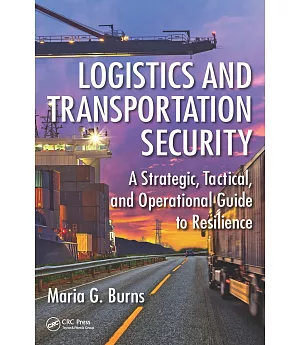This new textbook on transportation and logistics security is strongly informed by post-9/11 politics; the goal of security is to maximize profits, which are threatened by attacking enemies.
The author offers a neoliberal military-criminal philosophy and advocates corporate/government security partnerships. The book contrasts with other textbooks which use a risk-management
approach, focused on improving performance and securing infrastructure against natural and human-made dangers. The text treats an organization’s risk as unrelated to its behavior (outside of
security policies). As a result, the book is of limited use for settings like international relations and business, where an organization’s risk may depend on its behavior around resource
limits, cultural, political, or economic factors. It is also not for fields where security involves accident prevention. It will be useful for short-term planning against crimes like commercial
piracy or for-profit computer hacking, where targets are random and chosen based on strategic vulnerabilities. It will be most useful for law enforcement students who plan to work in commercial
ports and shipping (the author’s field). Annotation ©2016 Ringgold, Inc., Portland, OR (protoview.com)





















